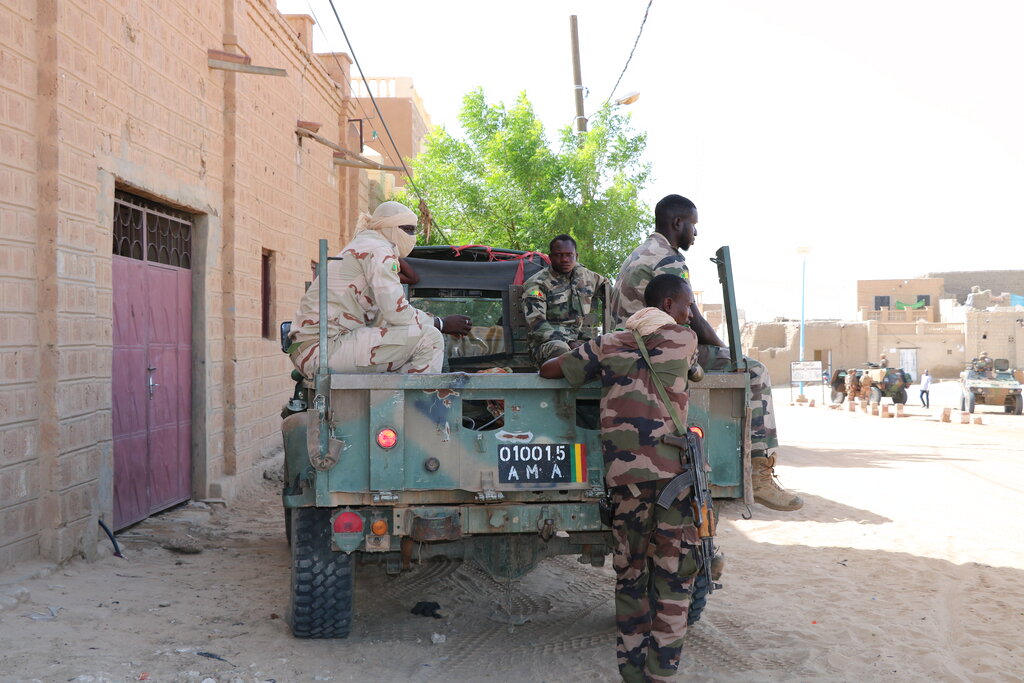ADF STAFF
In the darkness of early morning on January 26, a team of Malian soldiers and Russian mercenaries rushed into the village of Welingara in the central Nara region. They arrested 25 men and boys, took them 2 kilometers outside the village and immediately executed them.
“The bodies were found, piled on top of each other, some blindfolded, riddled with bullets or slit throats,” according to local sources interviewed by Radio France Internationale. “Many were burned.”
Volker Türk, head of the United Nations High Commissioner for Human Rights (OHCHR), said he was “appalled” by the “credible allegations.” He also urged Malian authorities to ensure that their troops, “as well as their agents or allies,” adhere to international humanitarian law, in particular the protection of civilians.
“It is essential that all allegations of arbitrary deprivations of life, including summary executions, are fully and impartially investigated and those found responsible brought to justice in trials observing international standards,” he said in a February 1 statement.
Unidentified gunmen also killed about 30 civilians in the villages of Ogota and Oimbe in the Bandiagara region in late January, Türk said.
“It is part of a trend,” OHCHR spokesperson Seif Magango said in a February 2 video report. “We have seen repeated situations where Malian forces and these foreign military personnel round up young people in villages and summarily execute them without giving them any chance to be heard, without taking them to court, without following due process.”
Civilian massacres are nothing new for Russian mercenaries deployed to Africa. The fighters, formerly known as the Wagner Group, have been rebranded as the Africa Corps and placed under the Russian Ministry of Defense.
Their track record on the continent is one of spotty security and allegations of atrocities and abuses against civilians.
In a 2023 report, independent U.N. rights experts described a “climate of terror and impunity” surrounding the Russian mercenaries’ work in Mali.
The most notorious example came in a March 2022 massacre of more than 500 people in the village of Moura in central Mali. Most of them were executed. Witnesses told the OHCHR of “armed white men” terrorizing the village alongside Malian soldiers for five days.
Mali, which is ruled by a military junta that overthrew the civilian government in a 2020 coup, has been fighting an insurgency linked to al-Qaida and the Islamic State group since 2012. Thousands have been killed, and more than 6 million people have been displaced.
Despite evidence of atrocities and war crimes, the junta has rejected the U.N.’s calls for investigations and demanded the withdrawal of the U.N. peacekeeping mission, known as MINUSMA, that deployed to protect civilians in 2013. MINUSMA ended on December 31.
Sahel expert Jeremy Keenan, of Queen Mary University of London, said security has worsened “more rapidly” since the military coups of 2020 and 2021.
Malian forces and their Russian partners now are fighting an alliance of Tuareg separatists and the Jama’at Nusrat al-Islam wal-Muslimin (JNIM), a coalition of extremist insurgent groups linked to al-Qaida.
“[The second coup] saw the Wagner Group being invited in to replace the French military and the U.N. peacekeeping force,” Keenan told African Arguments magazine.
“Not only did attacks by JNIM and the Islamic State in the Greater Sahara intensify against both civilian and military targets in Mali, but they also escalated in both neighboring Niger and Burkina Faso, which have both also succumbed to military [coups d’état] and increasing Russian influence.”
Lucas Webber, co-founder of the Militant Wire research network, said security continues to deteriorate.
“Jihadists and other militants continue to rampage through the area,” he told African Arguments. “With Russia and Wagner, there are few if any human rights requirements, and their forces are both performing government security and offensive military roles.”
Magango said Türk continues to urge the Malian government to investigate “human rights violations committed by anybody, including their armed forces.”
“It is important that the cycle of impunity that has brought Mali to where it is today is cut,” Magango said. “That cycle needs to be broken.”

